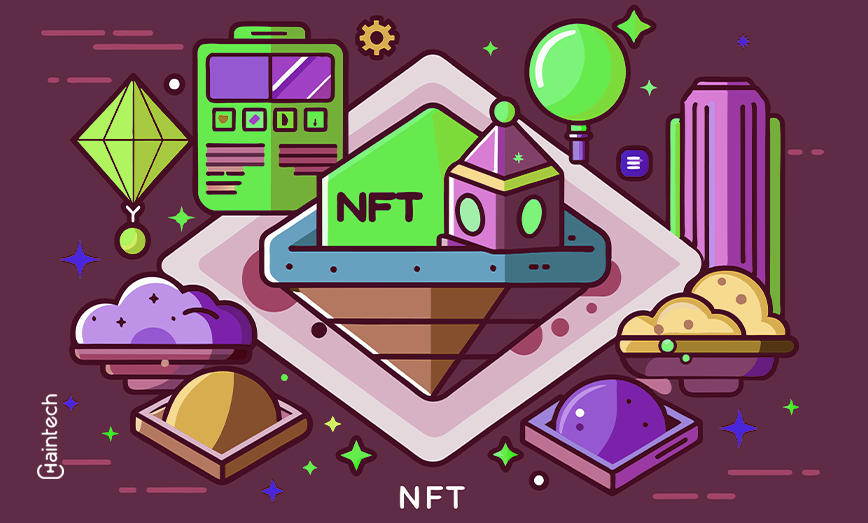Capital: How Tokenization Empowers SMEs to Raise Funds

Imagine a small handmade jewelry business in Austin. They want to grow by opening a new store or adding more staff. But traditional funding feels out of reach. Loans are expensive, and finding investors is tricky. That’s where tokenization comes in—a way to raise capital using digital technology.
Tokenization is a simple idea. It lets businesses turn assets into digital tokens that investors can buy. Many small businesses face funding challenges. Tokenization provides businesses with alternative means of funding that are cheaper and allow for funding from foreign investors.
Tokenization: The change that has fundamentally changed the dynamics of SMEs raising capital
- This enables SMEs to raise funds from global investors by issuing digital tokens representing tangible assets which can be traded in the marketplace.
- It reduces costs by removing middlemen such as banks and brokers while enhancing visibility and security using blockchain technology.
- These assets can also be traded in secondary markets thus improving investment appeal due to flexibility.
What is tokenization?
Tokenization turns your business assets into small, tradable digital pieces called tokens. These tokens live on a blockchain, which ensures secure and transparent transactions.
Think of it like crowdfunding, but instead of giving rewards, you offer ownership or profit shares through tokens. This approach makes fundraising easier and faster.
For example, a boutique hotel can tokenize its future room bookings. Guests-turned-investors pay upfront by buying tokens. They later redeem them for stays or even resell them.
Why SMEs struggle with traditional funding
Many small businesses face barriers when raising money. Here’s why:
- Access to Investors is Limited: It’s tough to connect with the right people willing to invest.
- High Costs Add Up: Bank fees, legal expenses, and intermediaries make traditional methods expensive.
- It’s Slow and Complicated: Negotiations and paperwork take months.
- Strict Terms Restrict Flexibility: Loans or equity deals can tie a business’s hands.
Tokenization solves these problems. It connects businesses to global investors, reduces costs by removing middlemen, and speeds up the entire process.
Benefits of tokenization for SMEs
1. Attracts Global Investors
Tokenization connects you to the world. Investors no longer need to live nearby. They just need access to your tokens online. This broadens your funding opportunities, especially if your product appeals internationally.
2. Lower Costs
Traditional fundraising methods are expensive. Tokenization reduces the need for banks, brokers, or lawyers. You save money while keeping more control over your business.
3. Better Liquidity
Tokens allow investors to sell their stakes anytime. This makes them more likely to invest since they don’t feel locked in.
4. Trust Through Transparency
Blockchain ensures all transactions are visible. Investors trust the process, knowing their money is handled securely.
How SMEs use tokenization
Tokenization isn’t one-size-fits-all. Here are a few popular models:
| Model | What It Involves | Best For |
| Equity Tokenization | Selling shares as tokens. | Startups and growing businesses |
| Asset Tokenization | Turning real estate or IP into tradable tokens. | Property owners, creative works |
| Revenue Tokens | Sharing future earnings through tokens. | Subscription services. |
| Utility Tokens | Offering access to services or products via tokens. | Tech and e-commerce platforms. |
Choose what fits your business. A coffee shop might tokenize future coffee sales, while a tech startup could tokenize its equity.
How tokenization enhances investor confidence
Investors trust tokenization primarily because it has its foundations in blockchain. Blockchain is a decentralized system that has an operating ledger that records all communication forever. Investment funds can be traced to their original source network.
Also, the restrictions made in their agreements are enforced. Since they don’t have a threat of fraud or poor management, both of which are common in the conventional cause of raising funds, there is minimal fear on the back of the investors.Additionally, smart contracts automate processes, ensuring agreements are executed precisely.
This confidence encourages more people to invest, as they feel secure in the process. SMEs can leverage this trust factor to attract both small-scale and institutional investors who value reliability.
Why tokenization is the future for SMEs
The rise of tokenization for SMEs aligns with global digital transformation. With the rise of blockchain technology, more and more companies are looking towards blockchain to resolve many of the issues that have become inherent in businesses. Systemic barriers to cross-border capital raise for SMEs are broken down by tokenization.
In addition, it is consistent with the market trend towards the use of non-centralized forms of capital. Investors like systems that are flexible, safe, and can expand, and that is what tokenization is. For SMEs seeking to succeed in a digital-first paradigm, tokenization is not a hype but a necessity for their business strategies.
Steps to start with tokenization
Starting tokenization sounds complex, but it’s manageable. Follow these steps:
- Know the Rules: Research local and global regulations. This ensures compliance.
- Choose a Platform: Platforms like Polymath or Securitize make tokenization easy.
- Prepare Your Assets: Decide which parts of your business you want to tokenize.
- Attract Investors: Create a pitch that highlights why your tokens are valuable.
- Launch Your Tokens: Sell them using your chosen platform.
For example, a family-owned winery could tokenize future wine sales. This helps them grow without taking loans or giving up ownership.
Did you know?
Over 50% of tokenization projects globally involve real estate, showing how businesses are increasingly using this model for tangible asset-backed investments.
Challenges to consider
Tokenization isn’t without hurdles. SMEs need to be aware of these challenges:
- Complex Regulations: Different countries have different rules.
- Educating Investors: Many people still don’t understand blockchain or tokens.
- Technical Needs: Tokenization requires digital tools and expertise.
These challenges are manageable with the right guidance.
The future of tokenization for SMEs
Tokenization is still growing. Experts predict it will become more mainstream as blockchain develops. Soon, even the smallest businesses will use it to raise funds.
As technology improves, platforms supporting tokenization for SMEs will become easier to use. More investors will embrace digital tokens. The future is bright for SMEs willing to take the leap.
Raise capital, stay ahead
Tokenization is a solution that should not be ignored and does not only exist as a term. For small and medium enterprises, it’s a means for growth and making it in a competitive environment. No matter if you are a baker or in IT, this method enables you to reach investors from all around the globe.
Not only does it increase speed in the fundraising, lower expenses, build trust through proper transparency, but it also cuts the time in order to reach targets.
Now let’s take a moment and discover how tokenization can work for your business.Ready to start? Connect with experts and learn how to tokenize your future.
Did you know?
Tokenization can considerably lower the costs for fundraising in case there are intermediaries like banks or the brokers, making it possible for SMEs.
FAQs
1. What can be tokenized in a business?
You can tokenize assets like real estate, shares, capital or future sales.
2. Is tokenization legal?
Yes, but you must follow local and international regulations.
3. Can tokenization work for a small business?
Absolutely. Many small businesses are already using it to raise funds.
4. How do I find investors for my tokens?
Use platforms like Polymath or Securitize. They connect businesses with global investors.
5. Is tokenization risky?
It comes with challenges like regulations, but the benefits often outweigh the risks.









